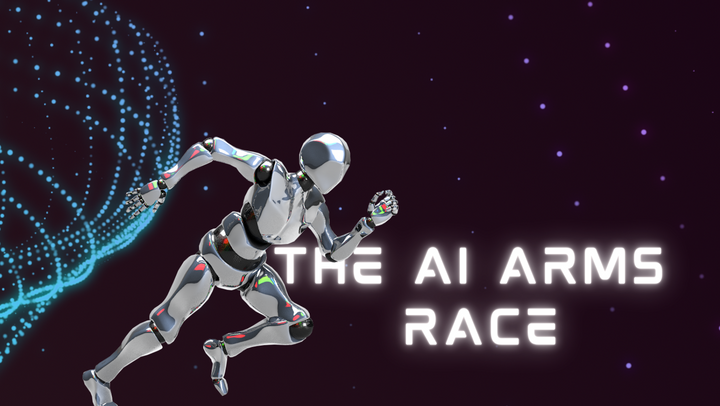Longtermism - What Does The Future Hold?

I once said that I believe my children will live to 125 years old. With the creation of new technologies and innovation in healthcare - this belief still rings true.
This led to me think about the idea of the long term. Always looking toward the future, I began to realise that we are still in the very early stages of humanity. It is important to understand that longterminism is not about predicting the lifespan of humanity but simply recognising that our future is vast with many possibilities.
Many people feed into the idea of longtermism already. Climate activists are fighting to save the climate and protect the planet. Their passion is built upon protecting the environment for the future and making a better world for their children and their children's children.
There are currently 7.9 billion people alive today. Demographers estimate that around 109 billion people have lived and died since the dawn of humankind. This means that those who are alive right now only make up for about 6% of all humans that have ever walked the Earth.
The United Nations have predicted that by the end of the century the population will stabilise at around 11 billion. A way to assume how long humanity will exist is by looking at other mammalian species. On average, other mammals have existed for around 1 million years. With the assumption that the average human will live to 88 and we have existed for 200,000 years, we can predict that humans have approximately 800,000 years ahead of us - this is of course without a major catastrophic event.
These sorts of ideas can lead to a lot of existential dread. However, I believe these theories are important to how we think about ways to conserve, support and protect ourselves and our planet. Of course, all these ideas are based upon the idea that humans are a typical species, which we are not.
Over the last century, humans have discovered various ways to protect ourselves but also more ways to destroy ourselves. With the development of nuclear destruction and other vital but dangerous technology, it can be daunting to think of the capabilities we now have. However, with these challenges come solutions. There have been many new and innovative ways to protect ourselves from disasters. Scientists now have ways to understand the movements of asteroids and ways to protect ourselves from nuclear radiation. If we protect humanity well, humanity and society may survive much longer than predicted.
After the COVID-19 pandemic, many have become much more concerned with the outbreak of new diseases. After the outbreak, many people became much more concerned with disease, vaccinations and engineered diseases. Although there are many solutions put in place for outbreaks to be controlled, the fear that surrounds them persists.
People have also begun to fear the capabilities of artificial intelligence. I do not believe this is necessary. AI has improved people's lives exponentially and will keep assisting humanity in ways we thought were only possible in science fiction. As I have discussed before, it is vital to recognise and understand that AI and automation are likely to cause some displacement, especially with employment. But this short and necessary change will allow us to prosper.
Throughout society, there is the issue of only being able to see what affects us. Humans rarely turn and look toward other global issues. This is something I take seriously, especially when paying attention to issues that are occurring across the globe. For example, the western world has advanced in ways beyond many people's wildest dreams. The issue here this that the West is leaving behind many other developing nations. We need to adopt the principles of looking beyond our home and creating methods to ensure everyone receives the same treatments, whether that be in healthcare, innovation or sustainability.
With the United Nations setting a precedent for the future with their Sustainable Development Goals, many have risen to the occasion. Their first goal is to eliminate extreme poverty worldwide. Many have suggested that poverty is inevitable. However, when we look at the number of people who have been lifted out of poverty over the last few decades, there are clear improvements.
The UN's deadline to achieve the goals is 2030. After the 1970's the number of those living in extreme poverty began to decrease. However, whilst the numbers are beginning to decrease, it is estimated that half a billion people will still live in extreme poverty. However, this is still a significant decrease. There has been great progress in the last 3 decades. In 1990, it was recorded that 1.9 billion people lived in extreme poverty and in 2018 the number had lowered to 650 million.
Although we are only in the first half of humanity's predicted lifespan, we have made progress in several areas. Many diseases have been completely eradicated, healthcare has improved tremendously and we have found ways to live in a world where the environment can flourish.
If we keep on the trajectory to do better, our children, grandchildren and many more generations will have the space to live long and healthy lives.
For more information on Tej Kohli as a philanthropist visit tejkohliruit.com and to read more of his views go to his Medium.
To read about Tej Kohli as an investor visit Kohli Ventures.
Find out more about Tej Kohli: Tej Kohli the technologist investing in human triumph, Tej Kohli the philanthropist trying to cure the developing world of cataracts and Tej Kohli the London tycoon with a generous streak.
| Follow: Twitter | Instagram | LinkedIn | Facebook | YouTube |




Comments ()